During the election campaign, Donald Trump criticized the Iran nuclear deal but otherwise revealed little about his views on nuclear arms control. Of concern, he seemed unaware of the components of the U.S. strategic nuclear triad (submarine-launched ballistic missiles, land-based intercontinental ballistic missiles, and heavy bombers) and made worrisome comments about possible nuclear use and proliferation.
At some point soon, the president-elect will learn about the most awesome power and responsibility that he will have as commander-in-chief: control of America’s nuclear arsenal. The briefing on the nuclear options and choices he would face if the prospect of nuclear conflict were to arise may scare the bejeezus out of him. At least it should; most people would be unnerved when told that they have the power to give an order that would result in the death of millions of their fellow human beings. Nuclear weapons are serious.
There are indications that Mr. Trump may understand. When speaking to the president of Kazakhstan on November 30, the president-elect reportedly said “there is no more important issue than nuclear disarmament and nonproliferation to be addressed in the global context.” Arms control and negotiated reductions of nuclear weapons thus might interest Mr. Trump. Here are three reasons why.
1. Improving relations with Russia
Over the past year, the president-elect has regularly expressed a desire to improve relations with Russia. It was one of the consistent themes of his campaign. Doing so, however, could prove harder than he thinks. A genuine improvement in the relationship with Russia will require that Washington and Moscow come to terms on some difficult issues that divide them.
Reaching an understanding on Syria looks to be tough. Mr. Trump wants Russia to join the United States in fighting ISIS. The Russian military, however, has been conducting combat operations in Syria for 15 months—but rarely against ISIS. They have focused their attacks on other groups that pose a more direct threat to the Assad regime, as ensuring that regime’s survival is Moscow’s primary goal in Syria.
Likewise, an agreement over the Ukraine-Russia conflict—at least one that Mr. Trump could call a “win”—could prove elusive. By all appearances, Moscow prefers maintaining a simmering conflict in the Donbas, one that has claimed almost 10,000 lives, so that it can pressure and destabilize the Ukrainian government.
There is another possibility. Mr. Trump could try arms control. As it did for the Nixon, Reagan, and Obama administrations, progress on limiting and reducing nuclear weapons could provide an impetus for an improved overall relationship with Moscow. The Trump administration would have to address issues that the Russians have raised, such as missile defense and advanced conventional strike weapons. With political will, there are ways to bridge the differences that have stymied arms control discussions the past four years.
[P]rogress on limiting and reducing nuclear weapons could provide an impetus for an improved overall relationship with Moscow.
2. Saving money for conventional needs
A second reason Mr. Trump might look to arms control is that he wants to dramatically bolster U.S. conventional military power. He has proposed expanding the Navy from about 275 surface ships and submarines at present to 350, wants to add manpower for additional Army and Marine battalions, and would like to buy more fighter aircraft for the Air Force. All of that will cost money—a lot of money—at a time when the need to recapitalize strategic nuclear forces will consume an ever larger part of the defense budget.
Arms control could help Mr. Trump here. An agreement with Moscow reducing U.S. and Russian nuclear forces to levels below those required by the 2010 New START Treaty would reduce U.S. strategic force numbers and modernization requirements—and free up funding for other Defense Department needs.
Interestingly, James Mattis, the retired Marine general who is Mr. Trump’s nominee for secretary of defense, may well be amenable to this. He has questioned whether the United States needs to maintain the intercontinental ballistic missile leg of the triad and asked whether nuclear weapons do much more than deter nuclear attack. He might see value in an arms control agreement that reduces nuclear spending requirements and allows him to switch resources to address the Pentagon’s conventional force needs.
3. Doing a deal
Third, the president-elect has made very clear his desire as president to do deals, preferably big deals. He has done a lot during the course of his business career. When looking at the kinds of deals that a president can do, Mr. Trump may find himself more comfortable operating in the world of arms control, where much of the focus is on numbers—like the business deals he has done in the past. It is easier to see a concrete bottom line in the arms control field than when tackling arrangements to settle the Israeli-Palestinian dispute, end the horrific fighting in Syria, or find a solution to the Ukraine-Russia conflict, all of which will turn more on principles rather than numbers.
Arms control thus could interest the president-elect. It could help him improve the U.S. relationship with Russia, free up money to buy more ships and soldiers, and let him conclude a big deal. And, in doing so, he could reduce the nuclear threat to the United States and strengthen American security.
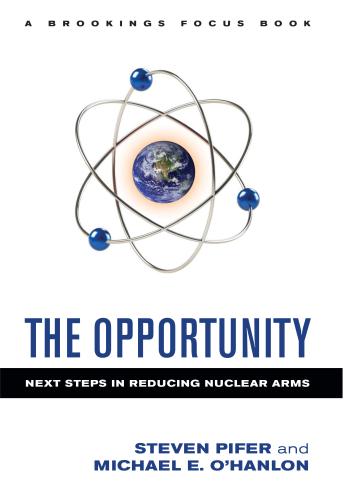
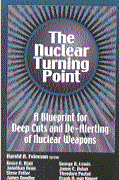
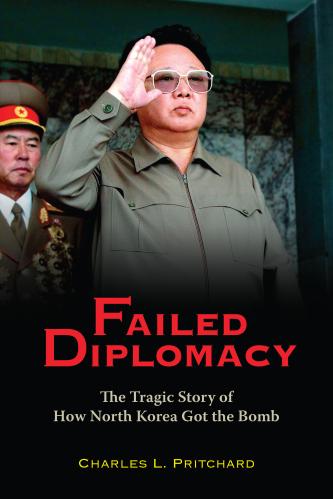
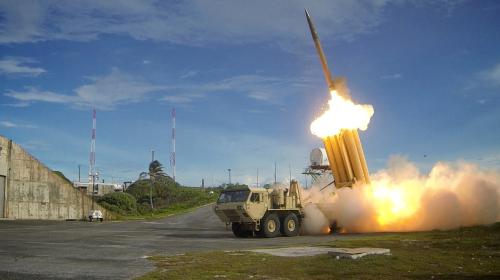
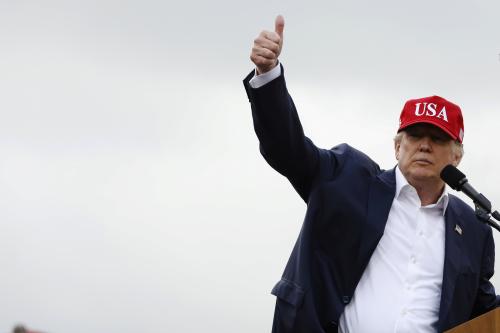
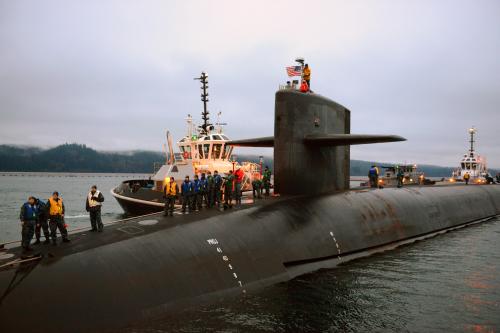

Commentary
Three reasons why arms control might interest Donald Trump
December 19, 2016